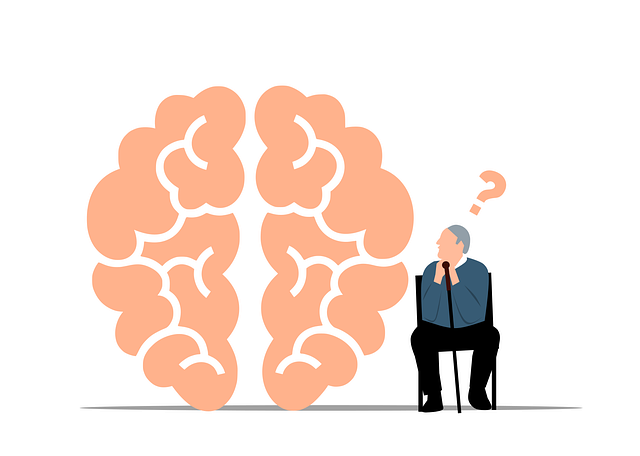Emotional intelligence (EI) is a powerful tool for managing stress, preventing depression, and improving mental wellness. Therapies like Littleton Depression Therapy integrate EI into treatment plans, focusing on self-awareness, empathy, and social skills. Techniques such as mindfulness, journaling, and active listening enhance EI, reduce anxiety, improve mood, and strengthen relationships. By addressing root causes and providing evidence-based programs, Littleton Depression Therapy equips individuals with emotional intelligence tools for improved holistic mental wellness.
Emotional intelligence (EI) is a powerful tool for navigating life’s challenges and fostering healthy relationships. This article explores the intricate relationship between EI and mental health, offering insights on how cultivating emotional intelligence can mitigate issues like depression. We provide a comprehensive guide to enhance your EI through practical strategies, and discuss the transformative role Littleton Depression Therapy plays in this process, empowering individuals to thrive with increased self-awareness and empathy.
- Understanding Emotional Intelligence and Its Impact on Mental Health
- Strategies for Enhancing Emotional Intelligence: A Step-by-Step Guide
- The Role of Depression Therapy in Cultivating Emotional Intelligence
Understanding Emotional Intelligence and Its Impact on Mental Health

Emotional intelligence (EI) refers to the ability to recognize, understand, and manage one’s own emotions, as well as recognize, understand, and influence the emotions of others. This multifaceted skill set goes beyond mere emotional awareness; it encompasses self-awareness, empathy, and social skills that enable effective communication and relationship building. In today’s fast-paced world, where stress and pressure can take a toll on mental health, cultivating emotional intelligence is more crucial than ever.
Research has shown that high EI levels are associated with better mental wellness and lower rates of depression. Littleton Depression Therapy, for instance, often emphasizes the role of emotional regulation in treating mental health disorders. By improving emotional intelligence through therapy sessions or self-help initiatives like the Mental Wellness Podcast Series Production, individuals can gain insights into their emotional triggers, develop coping strategies, and foster healthier interactions with others. This, in turn, enhances emotional resilience, promotes positive relationships, and contributes to overall mental wellness.
Strategies for Enhancing Emotional Intelligence: A Step-by-Step Guide

Building emotional intelligence is a multifaceted process that involves understanding your own feelings and those of others, and using this knowledge to guide your thoughts and actions. To enhance your emotional intelligence, consider adopting practical strategies like Compassion Cultivation Practices. These practices encourage empathy and kindness towards oneself and others, which can significantly reduce anxiety relief and improve mood management. Start by cultivating mindfulness—the practice of being fully present in the moment—which helps in recognizing and accepting emotions without judgment.
Next, engage in regular self-reflection. Take time each day to introspect about your feelings, triggers, and responses. Journaling can be a powerful tool for this, allowing you to track patterns and gain insights into your emotional landscape. Additionally, practice active listening when interacting with others. Focus on fully understanding their perspective and emotions before responding, fostering deeper connections and enhancing your ability to read and respond appropriately to the feelings of those around you. Incorporating these strategies can significantly contribute to improving your emotional intelligence, benefiting both personal and professional relationships, and even supporting efforts in Littleton Depression Therapy.
The Role of Depression Therapy in Cultivating Emotional Intelligence

Littleton Depression Therapy plays a pivotal role in cultivating emotional intelligence by addressing underlying mental health issues and providing individuals with powerful tools for self-awareness and regulation. Through therapeutic interventions, patients learn to recognize and understand their emotions, fostering an increased capacity for empathy towards themselves and others. This process is enhanced by incorporating evidence-based practices such as Mental Wellness Coaching Programs Development and Mental Health Education Programs Design, which empower clients to navigate life’s challenges with resilience and grace.
Additionally, Compassion Cultivation Practices are often integrated into these therapeutic approaches, encouraging individuals to cultivate a deeper sense of self-compassion and compassion for others. By combining these strategies, Littleton Depression Therapy not only helps in managing symptoms of depression but also promotes holistic mental wellness, ultimately leading to higher emotional intelligence and improved relationships.
Emotional intelligence, a key component of overall well-being, significantly influences mental health. By understanding and recognizing emotions, individuals can foster healthier relationships and make more thoughtful decisions. The strategies outlined in this guide offer practical steps towards enhancing emotional intelligence, while Littleton Depression Therapy serves as a powerful tool for cultivating these skills, particularly when navigating depression. Through a combination of self-awareness, empathy, and effective communication, one can achieve greater emotional resilience and improved mental health outcomes.











